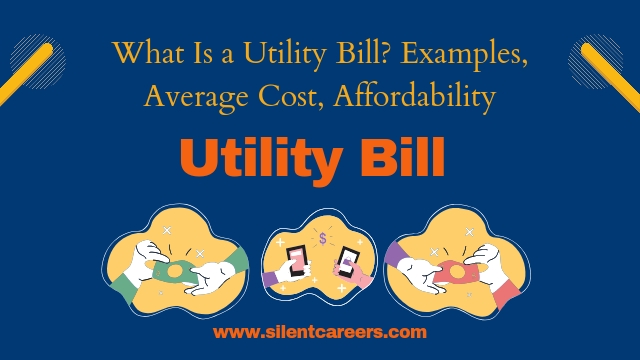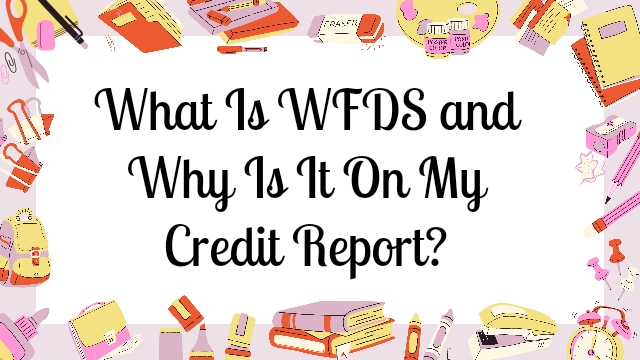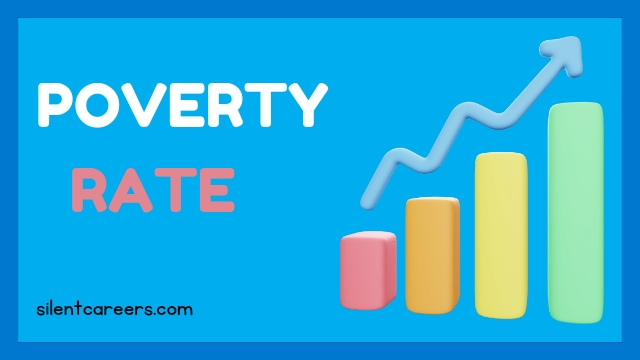
To increase your credit score by 50 points, pay all bills on time, reduce credit card balances below 30% of their limits, correct any errors on your credit report, avoid new debt, and diversify your credit mix responsibly.

2 Ways to Boost Your Credit Score by 50 Points
1. Pay Down Credit Card Balances
- Reduce Utilization: Aim to keep your credit card balances below 30% of your credit limits.
- Pay Off Debt: Focus on paying off high-interest debt first to free up more funds for other balances.
2. Ensure Timely Payments
- Automate Payments: Set up automatic payments to avoid late fees and missed payments.
- Catch Up on Overdue Accounts: Bring any past-due accounts current as soon as possible to improve your payment history.
What’s the difference between bad and fair credit?
The difference between bad and fair credit is primarily based on your credit score range, which reflects your creditworthiness to lenders. Here are the details:
Credit Score Ranges
- Bad Credit: Generally, a credit score below 580.
- Fair Credit: Typically, a credit score between 580 and 669.
Implications of Bad Credit
- Higher Interest Rates: Loans and credit cards often come with significantly higher interest rates.
- Loan Denials: Greater likelihood of being denied loans or credit cards.
- Security Deposits: Higher security deposits for utilities, rentals, and other services.
- Limited Credit Options: Fewer credit card options, often limited to secured cards.
Implications of Fair Credit
- Moderate Interest Rates: Loans and credit cards have more reasonable interest rates compared to those with bad credit.
- Better Approval Odds: Higher chances of being approved for loans and credit cards.
- Lower Security Deposits: Less likely to require high security deposits for utilities and rentals.
- More Credit Options: Access to a wider range of credit cards, including some with rewards programs.
Improving Your Credit Score
- Bad to Fair: Pay bills on time, reduce debt, and correct credit report errors to move from bad to fair credit.
- Fair to Good: Continue timely payments, keep credit utilization low, and diversify your credit mix to further improve your score.
Bad credit indicates a higher risk to lenders, resulting in fewer and more expensive credit options. Fair credit shows moderate risk, offering more favorable terms and broader access to credit products. Working to improve your credit score can lead to better financial opportunities and lower costs.
What’s the difference between fair and good credit?
The difference between fair and good credit lies in the credit score range and its impact on your financial options and terms offered by lenders. Here’s a detailed comparison:
Credit Score Ranges
- Fair Credit: Typically, a credit score between 580 and 669.
- Good Credit: Generally, a credit score between 670 and 739.
Implications of Fair Credit
- Moderate Interest Rates: Loans and credit cards often come with moderate interest rates compared to those with bad credit.
- Approval Odds: Higher chances of being approved for loans and credit cards, but not guaranteed.
- Credit Limits: Lower credit limits on credit cards and loans.
- Fewer Perks: Limited access to premium credit card rewards and benefits.
- Higher Insurance Premiums: Possible higher rates on car insurance and other premiums.
- Security Deposits: May still require security deposits for utilities, rentals, and other services.
Implications of Good Credit
- Lower Interest Rates: More favorable interest rates on loans and credit cards, saving money over time.
- Better Approval Odds: Higher likelihood of being approved for loans and credit cards with favorable terms.
- Higher Credit Limits: Access to higher credit limits on credit cards and loans.
- More Perks: Eligibility for credit cards with better rewards programs, perks, and benefits.
- Lower Insurance Premiums: More competitive rates on car insurance and other premiums.
- Less Need for Security Deposits: Reduced or no security deposits required for utilities, rentals, and other services.
Improving Your Credit Score
- From Fair to Good:
- Timely Payments: Make all payments on time to build a positive payment history.
- Reduce Debt: Lower your credit card balances to improve your credit utilization ratio.
- Credit Mix: Diversify your credit mix by responsibly using different types of credit.
- Limit Hard Inquiries: Avoid unnecessary hard inquiries on your credit report.
Fair credit indicates moderate risk to lenders, resulting in moderate interest rates and fewer premium credit options. Good credit suggests lower risk, leading to better interest rates, higher approval odds, and access to more rewarding credit products. Improving your credit from fair to good can enhance your financial opportunities and reduce costs.
Read more: How to Build Credit: Tips and Tricks for a Better Credit Score
How to improve credit fast
Improving your credit quickly requires strategic actions and disciplined financial management. Here are some effective steps to boost your credit score rapidly:
1. Check Your Credit Report
- Obtain Reports: Get your free credit reports from the three major bureaus (Equifax, Experian, TransUnion) via AnnualCreditReport.com.
- Identify Errors: Look for inaccuracies or errors and dispute them to have them corrected.
2. Pay Down Credit Card Balances
- Reduce Utilization: Aim to keep your credit card balances below 30% of your credit limits.
- Focus on High Balances: Pay off cards with the highest balances relative to their limits first.
3. Make Timely Payments
- Pay On Time: Ensure all your bills are paid on time, as payment history is a significant factor in your credit score.
- Set Up Reminders: Use payment reminders or automatic payments to avoid missing due dates.
4. Become an Authorized User
- Trusted Accounts: Ask a family member or friend with good credit to add you as an authorized user on their credit card account.
- Benefit from History: This can help you benefit from their positive payment history.
5. Request a Credit Limit Increase
- Higher Limits: Request an increase in your credit limit from your credit card issuer.
- Lower Utilization: This can lower your credit utilization ratio, provided you don’t increase your spending.
6. Pay Off Small Balances
- Zero Balances: Pay off any small balances on your credit cards to reduce the number of accounts with outstanding balances.
7. Dispute Inaccurate Information
- File Disputes: If you find errors on your credit report, file disputes with the credit bureaus to have the inaccuracies corrected.
- Follow Up: Ensure the credit bureaus respond to your disputes and correct any inaccuracies.
8. Consolidate Debt
- Balance Transfers: Consider transferring high-interest credit card debt to a card with a lower interest rate.
- Personal Loans: Use a personal loan to consolidate multiple debts into a single, lower-interest payment.
9. Limit New Credit Applications
- Avoid Hard Inquiries: Each new credit application can result in a hard inquiry, which can temporarily lower your credit score.
- Be Strategic: Only apply for new credit when absolutely necessary.
10. Monitor Your Credit Regularly
- Track Progress: Use credit monitoring services to keep track of changes to your credit score and report.
- Identify Issues: Quickly identify and address any new issues that may arise.
11. Use Experian Boost or Similar Services
- Include Utility Payments: Services like Experian Boost allow you to add utility and telecom payments to your credit report, which can help improve your score if you have a positive payment history.
Improving your credit quickly requires focused efforts on paying down debt, ensuring timely payments, correcting inaccuracies, and strategically managing credit utilization. While some changes may take time to reflect, these steps can help accelerate the process and boost your credit score.
How can I get a 50-point increase if I don’t have a credit card?
Improving your credit score by 50 points without a credit card is possible by focusing on other aspects of your credit profile. Here are several strategies to achieve this:
1. Review Your Credit Report
- Obtain Your Reports: Get your free credit reports from the three major bureaus (Equifax, Experian, TransUnion) via AnnualCreditReport.com.
- Dispute Errors: Identify and dispute any inaccuracies or errors to have them corrected.
2. Make Timely Payments
- Pay All Bills on Time: Ensure that all your bills, including loans, utilities, and rent, are paid on time.
- Set Up Reminders: Use payment reminders or automatic payments to avoid missing due dates.
3. Pay Down Existing Debt
- Reduce Loan Balances: Pay down any existing loans, such as auto, personal, or student loans, to lower your overall debt.
- Focus on High-Interest Debt: Prioritize paying off high-interest loans to save money and reduce debt faster.
4. Become an Authorized User
- Trusted Account: Ask a family member or friend with good credit to add you as an authorized user on their credit card account. This can help you benefit from their positive payment history and credit utilization.
5. Consider a Credit-Builder Loan
- Credit Unions and Community Banks: Many offer credit-builder loans designed to help you build credit.
- Timely Payments: Make all payments on time to build a positive payment history.
6. Use Experian Boost or Similar Services
- Utility and Telecom Payments: Services like Experian Boost allow you to add utility and telecom payments to your credit report, which can help improve your score if you have a positive payment history.
7. Limit Hard Inquiries
- Avoid New Credit Applications: Each new credit application can result in a hard inquiry, which can temporarily lower your credit score. Only apply for new credit when absolutely necessary.
8. Keep Older Accounts Open
- Length of Credit History: Maintain older accounts in good standing to benefit from a longer credit history, which positively impacts your score.
9. Diversify Your Credit Mix
- Different Types of Credit: If possible, responsibly add different types of credit to your profile, such as installment loans. A mix of credit types can positively affect your score.
10. Monitor Your Credit Regularly
- Credit Monitoring Services: Use these to track changes to your credit score and report. Quickly identify and address any new issues that may arise.
While having a credit card can be a significant factor in improving your credit score, it’s not the only way to boost your score. By focusing on timely payments, reducing existing debt, correcting inaccuracies, and using services like Experian Boost, you can achieve a 50-point increase without a credit card. Consistent and responsible financial behavior is key to improving your credit score.
Mistakes to avoid when you’re building credit
Building credit is crucial for your financial health, but it’s essential to avoid common mistakes that can negatively impact your credit score. Here are some mistakes to watch out for:
1. Missing Payments
- Impact: Payment history is a significant factor in your credit score. Missing payments can severely damage your score.
- Avoidance Strategy: Set up automatic payments or payment reminders to ensure you never miss a due date.
2. Maxing Out Credit Cards
- Impact: High credit utilization (the amount of credit you’re using compared to your credit limit) can lower your credit score.
- Avoidance Strategy: Aim to keep your credit utilization below 30%. Pay down balances regularly and avoid maxing out your cards.
3. Opening Too Many Accounts at Once
- Impact: Each new credit application results in a hard inquiry, which can temporarily lower your credit score.
- Avoidance Strategy: Space out your credit applications and only apply for new credit when necessary.
4. Closing Old Credit Accounts
- Impact: Closing old accounts can shorten your credit history, which can negatively impact your score.
- Avoidance Strategy: Keep older accounts open, especially if they have a good payment history and low or no annual fees.
5. Not Monitoring Your Credit Report
- Impact: Errors or fraudulent activity on your credit report can go unnoticed and harm your credit score.
- Avoidance Strategy: Regularly check your credit reports from all three major bureaus and dispute any inaccuracies immediately.
6. Only Having One Type of Credit
- Impact: A diverse credit mix (e.g., credit cards, installment loans, mortgages) can positively impact your score.
- Avoidance Strategy: Responsibly manage a mix of credit types to improve your credit profile.
7. Ignoring Credit Utilization
- Impact: High credit utilization can signal to lenders that you’re overextended and may struggle to repay debts.
- Avoidance Strategy: Keep balances low relative to your credit limits, and pay off your cards in full each month if possible.
8. Applying for Payday Loans
- Impact: Payday loans often come with extremely high interest rates and fees, and they don’t typically help build credit.
- Avoidance Strategy: Look for more affordable and sustainable borrowing options.
9. Not Having an Emergency Fund
- Impact: Without an emergency fund, you may rely on credit for unexpected expenses, leading to higher debt and interest payments.
- Avoidance Strategy: Build an emergency fund to cover at least three to six months’ worth of expenses.
10. Ignoring Small Debts
- Impact: Even small unpaid debts can be sent to collections, significantly harming your credit score.
- Avoidance Strategy: Pay off small debts promptly and avoid letting any bill go unpaid.
11. Not Understanding Your Credit Terms
- Impact: Misunderstanding your credit terms can lead to late fees, higher interest rates, and missed payments.
- Avoidance Strategy: Thoroughly read and understand the terms and conditions of any credit you accept.
Building credit requires careful and responsible financial management. By avoiding these common mistakes and consistently practicing good credit habits, you can build and maintain a strong credit score.
How your credit score is calculated
Your credit score is calculated based on several factors that reflect your creditworthiness. The most commonly used credit scoring model is the FICO score, which ranges from 300 to 850. Here’s a breakdown of the factors and their respective weight in calculating your credit score:
1. Payment History (35%)
- Impact: This is the most significant factor and includes your record of on-time payments for credit cards, loans, and other debts.
- Negative Marks: Late payments, defaults, collections, and bankruptcies can severely hurt your score.
2. Credit Utilization (30%)
- Impact: This factor measures the amount of credit you’re using relative to your credit limits.
- Ideal Utilization: Keeping your credit utilization below 30% is generally recommended.
3. Length of Credit History (15%)
- Impact: The longer your credit history, the better. This includes the age of your oldest account, the age of your newest account, and the average age of all your accounts.
- Consistency: A long, consistent credit history without negative marks helps improve this aspect of your score.
4. Credit Mix (10%)
- Impact: Having a diverse mix of credit types, such as credit cards, installment loans, mortgages, and retail accounts, can positively influence your score.
- Management: Successfully managing different types of credit indicates reliability to lenders.
5. New Credit (10%)
- Impact: This includes recent applications for credit, as each hard inquiry can temporarily lower your score.
- New Accounts: Opening several new accounts in a short period can be seen as risky behavior and negatively affect your score.
Understanding these factors can help you manage your credit more effectively and improve your credit score over time. Regularly monitoring your credit report and practicing good credit habits will contribute to maintaining a strong credit score.
Can You Raise Your Credit Score By 100 Points in 30 Days?
Raising your credit score by 100 points in 30 days is ambitious and may not be feasible for everyone, but certain actions can lead to significant improvements in a short period. Here’s what you can do to potentially see a substantial increase:
1. Check Your Credit Report for Errors
- Obtain Reports: Get your credit reports from Equifax, Experian, and TransUnion via AnnualCreditReport.com.
- Dispute Errors: Identify and dispute any inaccuracies or errors on your credit report, such as incorrect late payments or accounts that don’t belong to you.
2. Pay Down High Balances
- Reduce Credit Utilization: Paying down credit card balances can significantly lower your credit utilization ratio, which accounts for 30% of your score.
- Target High-Interest Debt: Focus on paying down high-interest debt first to save money and reduce debt faster.
3. Negotiate Higher Credit Limits
- Request Increases: Ask your credit card issuers for higher credit limits. This can lower your credit utilization ratio as long as you don’t increase your spending.
4. Become an Authorized User
- Trusted Account: Ask a family member or friend with excellent credit to add you as an authorized user on their credit card. Their positive payment history and low credit utilization can help boost your score.
5. Pay Bills on Time
- Timely Payments: Ensure all bills, including utilities, loans, and rent, are paid on time. Set up automatic payments or reminders if needed.
6. Reduce New Credit Applications
- Avoid Hard Inquiries: Refrain from applying for new credit cards or loans, as hard inquiries can temporarily lower your score.
7. Consolidate Debt
- Balance Transfers: Consider transferring high-interest credit card debt to a card with a lower interest rate.
- Personal Loans: Use a personal loan to consolidate multiple debts into a single, lower-interest payment.
8. Use Experian Boost
- Utility and Telecom Payments: Add your utility and telecom payment history to your Experian credit report using Experian Boost. This can help increase your score if you have a positive payment history.
9. Correct Past Due Accounts
- Catch Up on Payments: Bring any past-due accounts current. Contact creditors to negotiate a payment plan if necessary.
10. Diversify Your Credit Mix
- Credit Types: Responsibly manage different types of credit, such as installment loans and revolving credit, to improve your credit mix.
11. Keep Old Accounts Open
- Length of Credit History: Maintain older credit accounts to benefit from a longer credit history, which positively impacts your score.
Summary
While raising your credit score by 100 points in 30 days is challenging and not guaranteed, these actions can lead to significant improvements in your credit profile. Consistently practicing good credit habits and addressing issues promptly will help you achieve a higher credit score over time.








